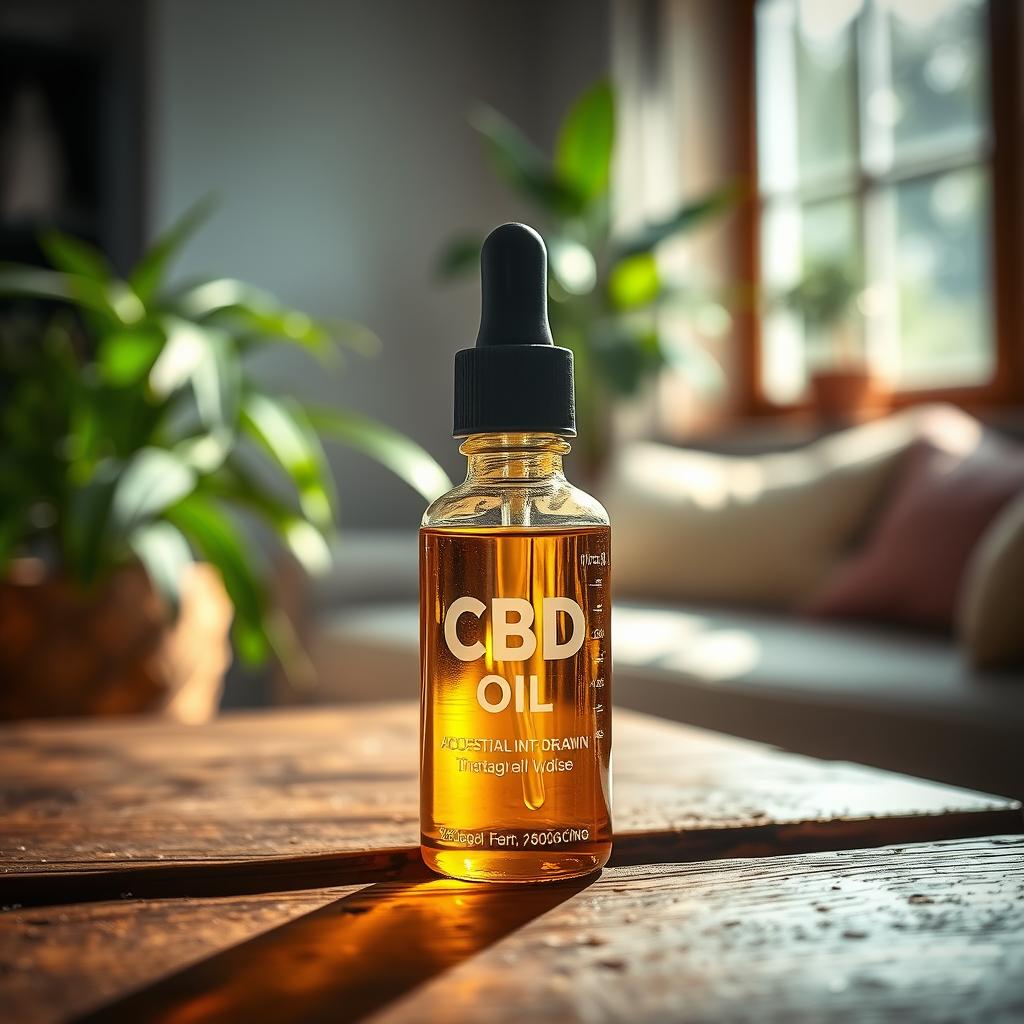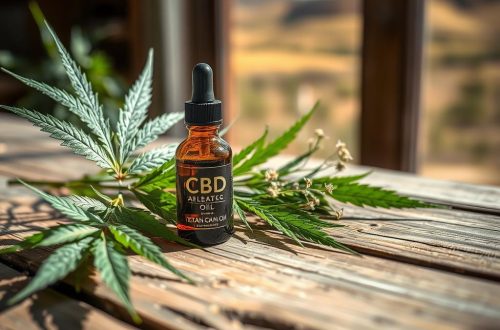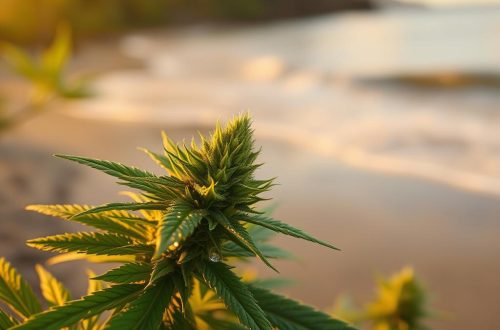How Long Does CBD Stay in Your System?
You’ve been on CBD and are now interested in its general breakdown in your organism. This is a sensible yet quite tricky question to understand. It might also be related to the endless contemplation on tomorrow’s drug testing or simply motivated by a desire to learn. However, the burning question for most people would be, for how long does CBD stay in the body? Even though it would have been convenient to get one response addressing all concerns, breaking news is there is no concrete time frame because there is a CBD detection window which may last from a few hours to more than a month. Such individual-specific results explain why this happens.
Brief Answer Is Complicated
For an individual that is asked, “how long does CBD stay in your system?”, the simple response can be “it differs under different circumstances.” For first-timers as well as infrequent users, for example, CBD might cause clear effects within hours or a few days, maximally up to a week. Yet, for someone who uses it frequently and regularly over a long time, CBD gets stored in the fat cells of the body. In that situation, for 30 or more days after stopping, evidence of such an activity can be found in the system. This hence is particularly a point of answering why such an approach is used. For that, first understanding each and every aspect of such an activity will help one estimate the duration taken by the activity as it is undertaken.
The Main Considerations for How Long CBD Remains Within the System
There are a number of factors that affect how long CBD stays in the body and how long it takes to eliminate it from the system. This is not a single factor, but both your lifestyle, your body, and the specific product play roles. When you think about these factors, they will help you, in your specific case, a lot and you will also be able to understand how long CBD stays in your system differs for everyone.
Breaking Down the Limitations of the Amount Used
This is perhaps the simplest and the most familiar explanation. If a person takes more CBD, he or she will need more time to metabolize and expel the compound. A 10mg dose will be excreted much sooner than a 100mg dose. This can be envisioned as water draining: a small quantity of water can be emptied fast, but a complete tub is difficult to empty. Higher dosage is the same for the body, requiring a greater length of time to convert it into energy.
Regularity of Consumption: Building up Resistance
The frequency of CBD consumption affects how long it may take for the substance to be completely eliminated from the body. If you take one dose of CBD, it will be metabolized and excreted from the body soon. But since CBD is hydrophobic, it accumulates in the fatty tissues of the body. When you consume it very frequently, the rate at which your body clears the CBD cannot match the rate of its intake. This is what extends the detection period significantly. That is why the answer to the question of how long CBD stays in your system will be significantly different for an occasional user as compared to a heavier user.
Your Own Personal Physiology
In medicine, each body differs from one another, and it affects how each person handles drugs, i.e., CBD. Your BMR, otherwise known as the rate of energy expenditure at rest, is an important component. Strictly speaking, generally, people with higher metabolic rates metabolize things at a faster rate. Also, Body Mass Index and moisture level are important. However, if CBD is stored partly in the adipose (fat) tissue, then it is likely that a person with more adipose tissue will retain the CBD for a longer period of time.
Mode of Consumption: The CBD Use Ways Consumable Forms
An individual mode of consumption, however normal it seems, plays an important role in how CBD is taken in and the period within which it would work. The extent to which each method would allow the substance to enter the body and avail itself to the users varies. These constitute a rather substantial factor for some people asking generally where and how long CBD stays in your system.
- Inhalation (Vaping): It is the fastest way because the THC in CBD hits the lung before getting into the bloodstream. Then again, it also excretes faster than ice.
- Sublingual (tinctures/oils): When the oil is under the tongue, the mucous membranes of the tongue help to absorb CBD oil immediately and eliminate the need for digestion. It is more durable than vaping, but less than edibles.
- Oral administration (edibles/capsules): When you eat CBD, it has to work its way through the digestive system and through the liver to be metabolized. This process or the ‘first pass effect’ causes the effect to take more time to kick in the body and at the same time it results in the longest period of time the CBD will remain in the system.
- Topical administration (creams/lotions): Topicals are essentially used on the skin’s surface for more convenience of the alleviating benefits. More often than not, they are not absorbed in large concentrations into the blood and therefore are less likely to become a concern in terms of window periods.
Eating Habits – Intake of Food
Alongside this, what you eat in relation to taking CBD can also influence the impact, especially if you consider edibles and oils. In particular, if CBD is consumed in a meal rich in fats, then greater amounts of CBD will be absorbed into the body. Fats assist in the transportation of CBD particles facilitating absorption. Of course, on one hand, this may strengthen the resultant feeling, but on the other hand, it may sometimes take some time before the body gets rid of all the contents. There is also a concern of how long MCT oil, for example, heightens the absorption of CBD, and so forth.
The Examination of Methods of CBD Drug Use and Their Practical Implications
However, to understand it better, it is necessary to look at how different methods of consumption influence the bioavailability and duration of the use of CBD. This will help you make a better judgment of the correct product for you and how much in terms of the timeline can be achieved. One of the most important factors, which one has direct influence over concerning how long CBD stays in your system, will be this is a behavioral element – the means of its use.
| Method | Onset of Effects | Duration in System | Bioavailability |
|---|---|---|---|
| Inhalation (Vaping) | 1-5 Minutes | Cleans Quickly | Up to 50% |
| Sublingual (Tinctures) | A quarter of an hour to 30 minutes | Longer | 15% to 25% |
| Orally (Edibles) | 30 Minutes to a Maximum of 90 | Slowest process | 5% to 20% |
| Topicals (Creams and the like) | Depends as this is clearly non-systemic | Practically Infinitesimal in the Circulation | Nearly None in All Body Parts |
Does CBD Fail a Blood Test? THC Assumption
Most of the time, a person asking is not interested in “how long does CBD stay in your system.” However, there is a bit of a respite as CBD cannot, as grading, fall within any blood test. A drug test is looking for THC (tetrahydrocannabinol), the substance that makes weed psychoactive. The problem or confusion really starts here. There is a possibility that the THC content in the kind of CBD that is being used may be present, even if it does not perform as a full THC content device.
Complete Spectrum CBD
Every cannabinoid present in the marijuana plant has to be included in full-spectrum products, including CBD and legally 0.3% THC only. Though not intoxicating on its own, high doses of full-spectrum products taken over records may result in enough THC in one’s bloodstream to qualify for a very non-tainted urine screening test. This must be borne in mind when addressing the issue of how long CBD stays in your system within a work context.
Broad Spectrum CBD
The difference with broad spectrum products is that the toxins are of neither end of the spectrum. They contain a number of various minerals’ benefits to the plant, but the THC is eradicated. Clients favor this style where the added benefits are present, although some worry the flavor is enhanced.
Composition
The other factors mention compounds which are considered to have medical benefits but right now are in a state of flux.
My Conclusions
Of course, consuming edible medical marijuana can help with various conditions.
The CBD isolate with all other healing compounds of the cannabis plant, including the THC, is eradicated from the product. In general, it is improbable to get tested positive as a result of using CBD isolate. Deadlines and probity have never been known to coexist more than they have in the present-day society. It is possible for cross-contamination to happen during manufacturing, and the possibility of product mislabeling exists, as to confuse and is aggravated in the regulation-deprived CBD trade. This is why it is advisable to stick with brands that have third-party lab results (Certificates of Analysis) of their products as their THC content.
How Tests Affect Detection Windows
Even in the event of apprehension of THC from a full-spectrum formulation, the type of test administered will determine the extent of exposure. Answering questions such as how long CBD stays in your system does not help because the tests are not meant to detect CBD most of the time. Here the argument is with respect to the detection range of THC metabolites where such a range could be due to the use of CBD.
Urine Tests
Among all the drug tests, this is the most widely used test. It is worth noting that depending on substance abuse patterns, the presence of THC resulting from the CBD product ingestion can be detected within varying lengths of time:
- A Few Hours: Not tested
- Recreational Use (5/7 days): One week
- Heavy Use (daily): Min. 14 days; Max. 21 days
- Excessive Use: 45 days and up
Blood Work
Blood tests fare well in that regard as they offer a brief detection window. Active THC can be detected in the blood, by such tests, for a few hours post-consumption. Most other THC drugs, on the other hand, can be available for a week in a person with heavy use, although that test is not very popular as it is used only for certain job openings.
Mouth Swab Test
The saliva or oral fluid test has a very short detection period, similar to the blood test. Furthermore, their aim is primarily to be used while on the roads rather than at the workplace as it may not be safe.
Testing of Hair Strands
Hair follicle drug tests have the longest detection period of the methods. They can still detect the previous use of cannabis for up to three months. Although it is reliable for determining abuse history, detection of current or recent use is poor. The amount of THC content in one strand is low, but a few users can report THC as a contraindication in surveys or ‘testing’ even less.
Redirects to FAQ
I will attempt to answer the most frequently asked questions for what seems to be the most popular subject, namely – how long does CBD stay in your system – what are the possible detox possibilities.
Is there anything I can do to get the CBD out of my system more quickly?
Healthy routines are among effective short-term techniques. The reason being is because it is an essential characteristic of health, or in this case, proper hydration, which comprises drinking lots of water, diets high in fiber, and engaging the body in physical exercises. This also fosters detoxification and metabolism processes in the body. Physical activity, in its turn, may also come in handy since fat reserves containing CBD and THC compounds will aid in reducing weight gain.
When you apply topical CBD, does it replicate in the system?
Most of the time, the answer is no. This is because the standard topical creams and lotions offered for sale have been formulated to act on cannabinoid receptors present on the cutaneous tissues to cause some localized effects. They usually have no transdermal absorption nor do they diffuse in high enough concentration within the body tissues to cause any systemic actions. As such, when inquiring about, “how long does CBD stay in your system?”, there is no need to worry about the use of such forms of the drug.
How much time does it take for CBD to wear off the system when taken rarely?
In non-users or occasional users of CBD, a single dose is unlikely to produce any persistent effects and will decline relatively fast. Within 3 to 5 days, it would be almost eliminated from the urine and even sooner from the blood or saliva. However, this will only pertain to very occasional users as long-term protective effects are not expected to occur.
Conclusion
Ultimately, the issue of surprisingly the question ‘how long does CBD stay in your system’ becomes. A very frequent user or who takes it often would have this answered differently than a person who uses it occasionally, say a few days to one week or maybe one month. Your overall duration will depend upon the intensity of your usage patterns, your metabolic rate, your proportions of fats in the body, and how you have ingested it. Furthermore, and this is thanks to the testing policy, there are cases where in non-usage of marijuana, THC testing is done, and not the CBD. Or better yet, try a supplement with broad spectrum CBD or even an isolate offered by a respectable brand that includes test results from third-party laboratories. You will be able to make wise decisions regarding your dosages of CBD thanks to this knowledge.






